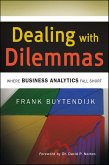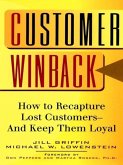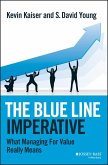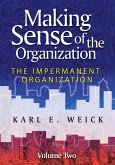In the midst of the most severe recession for 80 years there is little need to argue that organizations are beset by dilemmas and paradoxes. Confidence in prevailing business models and in the underlying assumptions underpinning business decisions over many decades has now been shaken. But it is not enough to rail against arrogance and greed. Within their own (flawed) assumptions bankers and corporate leaders were acting rationally. A major reason for the failure to anticipate and warn is that observers of organizations usually tend to view organizations in terms similar to those employed by the people who run them: as rational, sensible and objective, whereas, in fact, they are usually confused and confusing, paradoxical and contradictory entities. Paradox is at the heart of how organizations work (or don't work) yet the phenomenon has been strangely unstudied. In an age of crisis and uncertainty, dilemmas and paradoxes are especially evident and prevalent. The fascination and the promise of paradox is that there is also a sense that there is a hidden truth entwined within the opposites. This we contend is a challenge for leaders. The ultimate responsibility of leadership is to make sense of these and to handle them in a competent manner. This demands a new mode of leadership. The management of dilemma and paradox it is contended, the essence of leadership today. Paradoxical forces provide a dynamism which, although often experienced as potentially threatening, discomforting and negative can also be exciting, promising and positive. "The assumption that organizations are rational entities is challenged every day in the work environment by a rich reality of asymmetries between conflicting forces, complexity, hidden intentions and paradoxes. Anyone wanting to understand the real forces that govern organizations should read this book. A must read for modern leaders who have the intellectual honesty to lead organisations with open eyes and not with the over simplifications and clichés of the past"--Giovanni Ghisetti, Director Business Transformation, Coca Cola Enterprises Europe "Storey and Salaman's description of the paradoxes which characterise leadership today is hauntingly accurate. Their intelligent optimism that those dilemmas can be met is as encouraging as it is challenging for those of us who have to do just that. Having read the insights in this book I now understand how their business advice was always so pertinent".--Andy Street, Managing Director of John Lewis
Dieser Download kann aus rechtlichen Gründen nur mit Rechnungsadresse in A, B, BG, CY, CZ, D, DK, EW, E, FIN, F, GR, HR, H, IRL, I, LT, L, LR, M, NL, PL, P, R, S, SLO, SK ausgeliefert werden.









